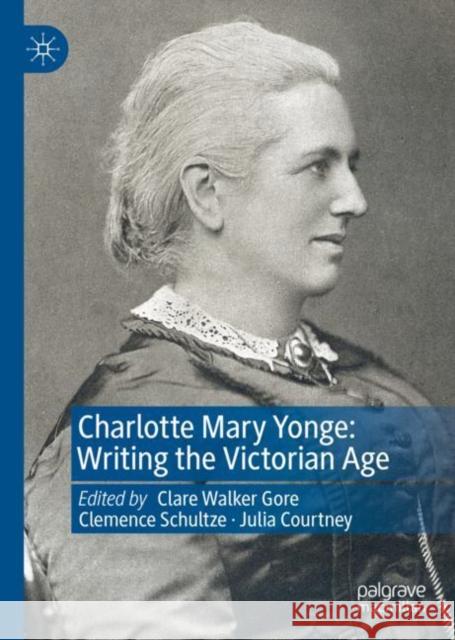Charlotte Mary Yonge: Writing the Victorian Age » książka
Charlotte Mary Yonge: Writing the Victorian Age
ISBN-13: 9783031106712 / Angielski / Twarda / 2022 / 352 str.
Charlotte Mary Yonge: Writing the Victorian Age
ISBN-13: 9783031106712 / Angielski / Twarda / 2022 / 352 str.
(netto: 536,72 VAT: 5%)
Najniższa cena z 30 dni: 501,19
ok. 16-18 dni roboczych.
Darmowa dostawa!
This interdisciplinary collection of essays explores the life and work of Charlotte M. Yonge, a highly influential and popular nineteenth-century writer who is emerging from a long period of critical neglect. Its wide-ranging chapters capture the scope and quality of current work in Yonge studies, addressing the full range of her prolific literary output from her best-selling novels to her nature writing, biographies, and letters. Considering themes from gender, disability, and empire, to Tractarianism, secularism, and the idea of progress, these essays consider how Yonge reflected and shaped the tastes, ideas and anxieties of her readers and contemporaries. Exploring her key role in the Anglican revival, her importance as a test case in the development of feminist criticism, and her formal innovativeness as a novelist, this collection places Yonge centrally in the nineteenth-century literary landscape and demonstrates her ongoing relevance to scholars and students of the period.
This interdisciplinary collection of essays explores the life and work of Charlotte M. Yonge, a highly influential and popular nineteenth-century writer who is emerging from a long period of critical neglect. Its wide-ranging chapters capture the scope and quality of current work in Yonge studies, addressing the full range of her prolific literary output from her best-selling novels to her nature writing, biographies, and letters. Considering themes from gender, disability, and empire, to Tractarianism, secularism, and the idea of progress, these essays consider how Yonge reflected and shaped the tastes, ideas and anxieties of her readers and contemporaries. Exploring her key role in the Anglican revival, her importance as a test case in the development of feminist criticism, and her formal innovativeness as a novelist, this collection places Yonge centrally in the nineteenth-century literary landscape and demonstrates her ongoing relevance to scholars and students of the period.











